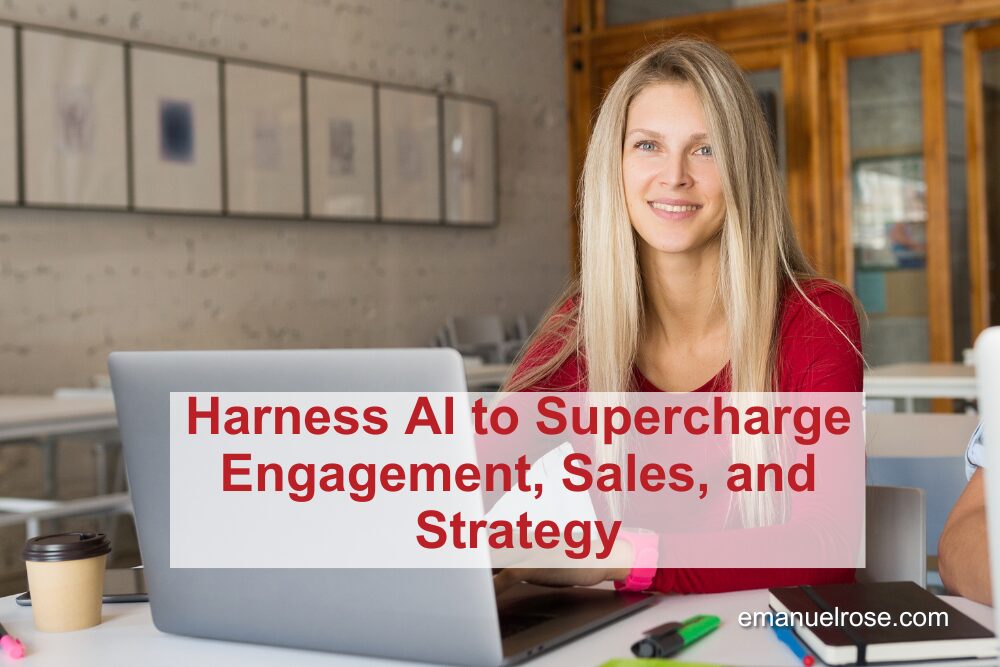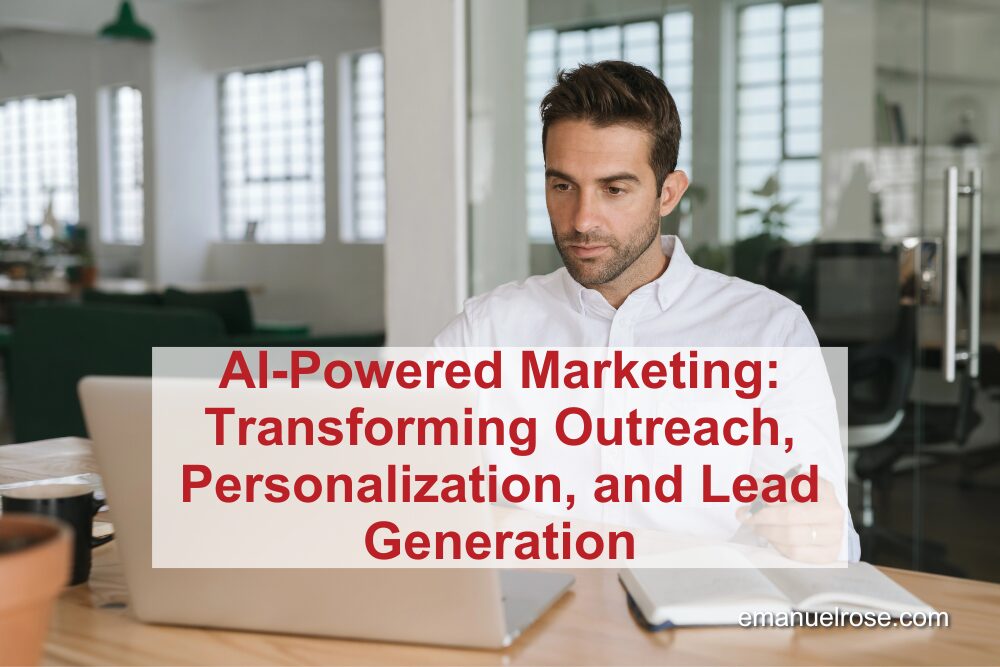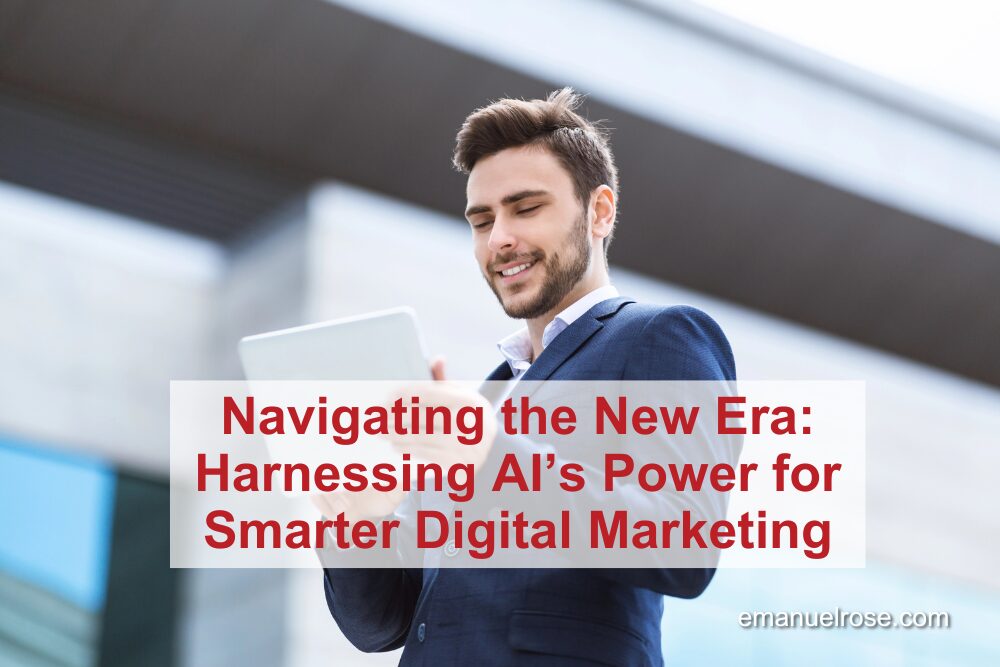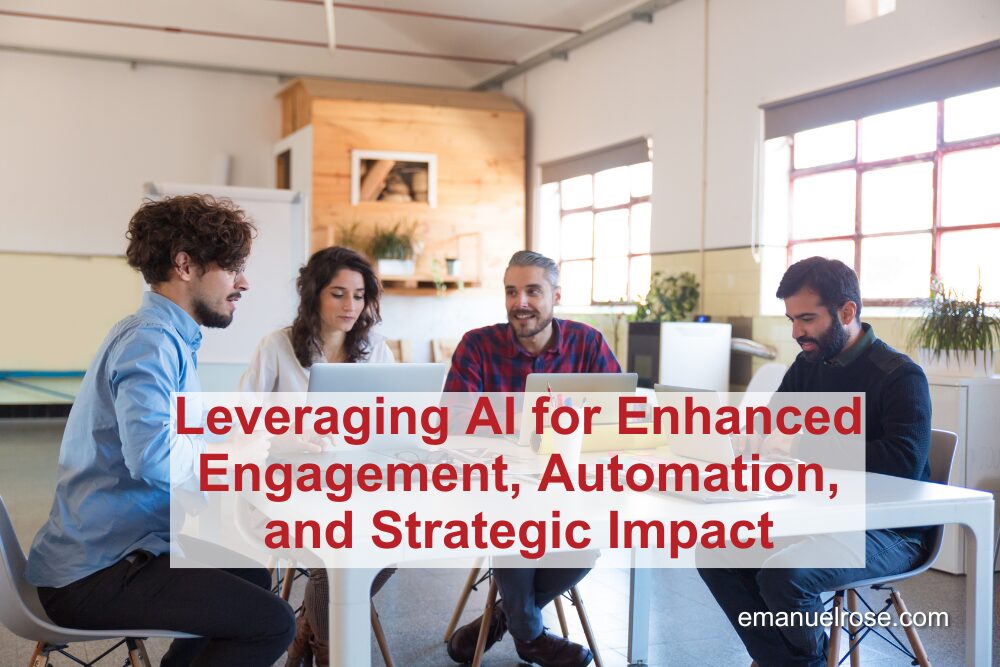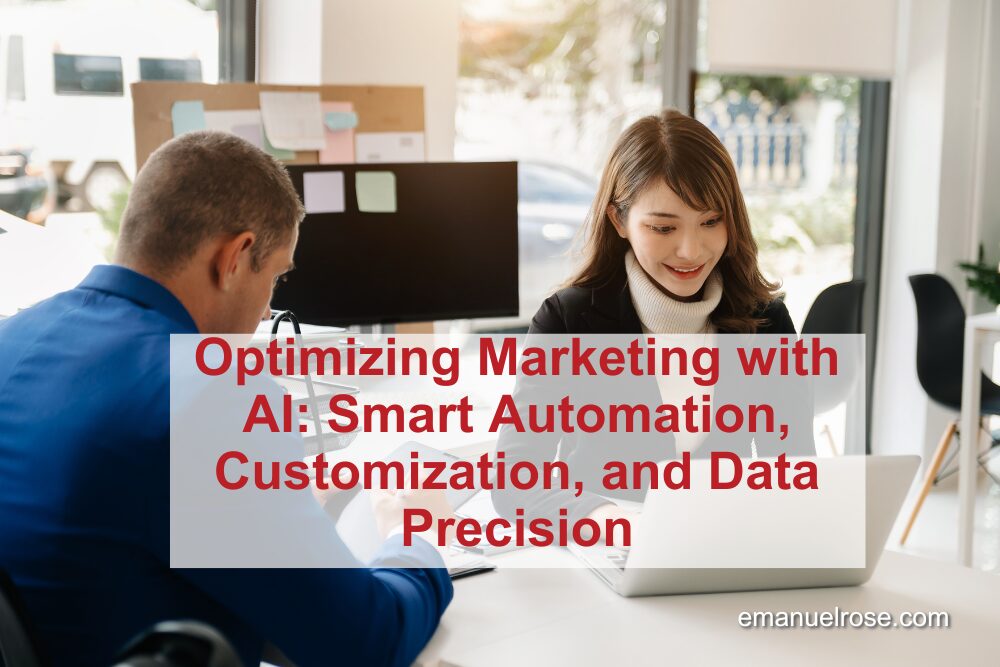Harness AI to Supercharge Engagement, Sales, and Strategy
https://youtu.be/f3S3_BDhKeg The marketing world is undergoing a profound transformation, as AI-powered tools become increasingly accessible and sophisticated. From automating mundane tasks to driving personalized customer experiences, AI offers diverse capabilities that can enhance productivity and creativity. As businesses continue to navigate this digital shift, embracing AI’s potential to analyze data, predict trends, and optimize marketing efforts is essential. The Rise of AI Agents: Redefining Marketing Possibilities A fascinating development in AI is the emergence of AI agents. These virtual assistants can autonomously execute tasks and provide results without continuous human intervention. By allowing AI to manage repetitive or complex tasks, businesses can save significant time and resources, focusing their energies on more strategic initiatives. AI agents are utilized across various industries, from enhancing customer service interactions to streamlining operations in complex environments. For instance, a company can deploy AI to manage email campaigns, analyze response trends, and continually refine messaging to align with customer preferences—all while freeing the human workforce for more creative and high-level planning. AI agents bring a potential shift where routine processes are handled with unmatched efficiency, allowing marketing teams to explore innovative approaches and expand their creative horizons. Enhancing Personal and Departmental Productivity with AI AI’s applicability extends beyond business-wide strategies and enhances personal and departmental productivity. Tools like Google AI Studio provide a platform for users to engage with AI interactively, fostering a hands-on approach to learning and problem-solving. Professionals can optimize their time and output by personalizing AI applications to fit individual workflows. At the department level, AI supports various functions, from marketing and sales to finance and HR. Each department can tailor AI solutions to address unique challenges, ensuring that AI complements existing processes and elevates operational efficiency. In marketing, this means employing AI for detailed customer segmentation and insights, allowing campaigns to be precisely targeted and more effective. Data Security and Ethical Use of AI As AI advances, businesses must remain vigilant about data privacy and ethical considerations. Protecting sensitive information and maintaining transparency in AI applications are critical to building trust with customers and stakeholders. Companies must prioritize secure AI integration to safeguard data while harnessing AI’s full potential for strategic benefit. The ethical use of AI also involves ensuring that algorithms do not inadvertently introduce bias or unfair practices. This requires continuous monitoring and adjustments to how AI-driven processes function, ensuring alignment with ethical standards and regulatory requirements like GDPR, and ensuring consumers’ rights are respected and protected. Innovative AI Applications and Future Outlook The next frontier for AI in marketing lies in the innovative applications that harness its dynamic capabilities. Whether through developing sophisticated chatbots, optimizing content creation, or crafting immersive customer experiences, AI opens doors to creative possibilities that were once unimaginable. AI platforms continue to evolve, enabling marketers to push the boundaries of creativity and efficiency. For instance, AI can now assist in generating creative content in real time, adapting to trending topics and shifting consumer interests. Video and voice search are becoming more prominent, and AI can optimize these channels for better customer interaction and engagement. Embracing a Future-Forward Approach As businesses explore the myriad AI tools and platforms available, consider how they can be personalized to meet unique needs and strategic goals. Through thoughtful integration and innovative adoption, AI can become a powerful ally in your marketing journey, paving the way for more informed, efficient, and creative campaigns. Embrace the digital revolution and begin your journey into the age of AI-powered marketing today. Whether exploring Google AI Studio or integrating responsive chatbots into your customer engagement strategy, harnessing AI’s capabilities can transform your business, offering a future-forward approach that ensures growth and innovation. Prepare to not only adapt to change but also drive it, crafting an agile, responsive, and visionary marketing strategy. We appreciate James Sadov’s insights, which highlight how AI is transforming marketing strategy, productivity, and customer engagement.Get to know James Sadov: linkedin.com/in/jamessadovGet to James Sadov’s company: ctera.com Watch the Marketing in the Age of AI podcast featuring James Sadov: youtu.be/f3S3_BDhKeg
Harness AI to Supercharge Engagement, Sales, and Strategy Read More »

